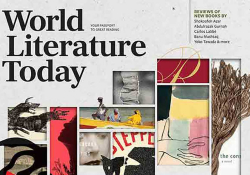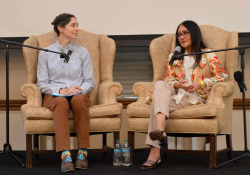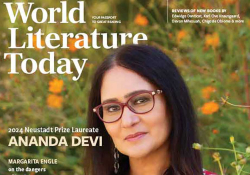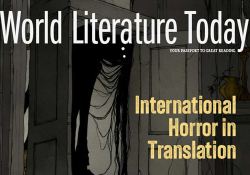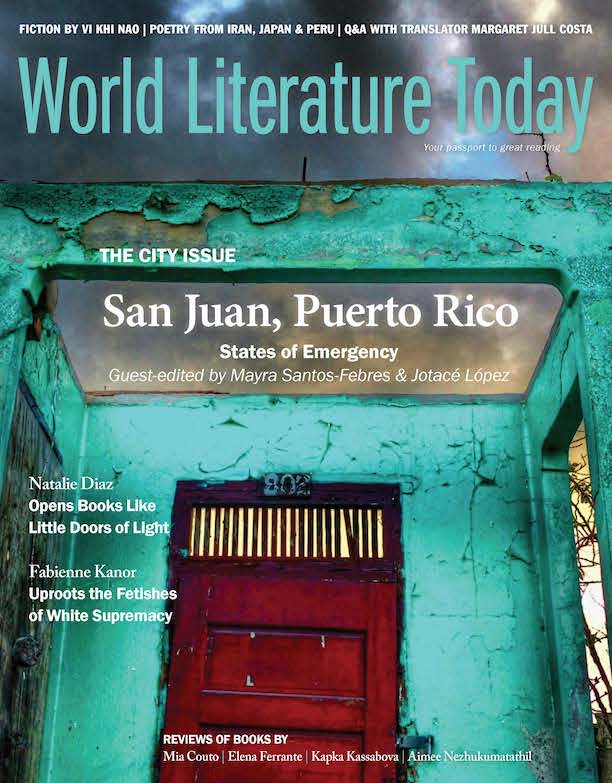Editor’s Note
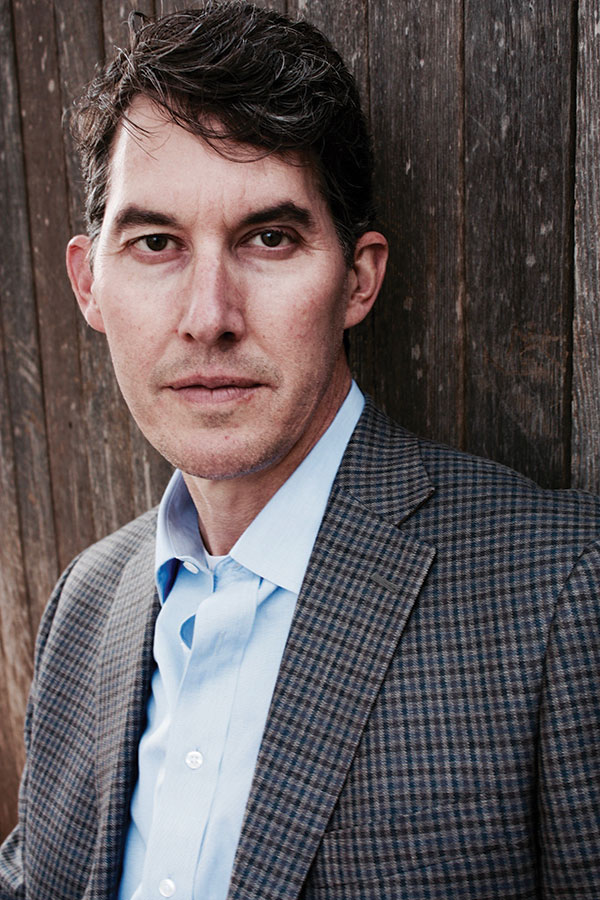 Hope is the work that we must do, so much work to fix this. – Eïrïc R. Durändal-Stormcrow, “Don’t Suicide”
Hope is the work that we must do, so much work to fix this. – Eïrïc R. Durändal-Stormcrow, “Don’t Suicide”
In his poem “Impromptu,” written while walking along the Piedras River watershed, Puerto Rican poet Urayoán Noel writes: “adjacent to the island of crisis / there is another island / as beautiful / as always and as never / that’s where I look for myself and find you.” Not unlike the spotlight on Hong Kong in last year’s city issue, this year’s focus on San Juan might immediately conjure up journalistic accounts of an “island in crisis”—in Puerto Rico’s case, the devastation of Hurricanes Irma, Maria, and Dorian, most notably, as well as the more recent earthquakes and the current pandemic. As Jotacé López writes in his introduction to the cover feature, “To speak of a constant state of emergency is to speak of the vulnerability of bodies.” For the nine writers included in the section that follows, bodies—and landscapes—are everywhere marked by the visible signs of trauma and recovery: “eyes wide open and looking up at the sky, as if pleading.” For Raquel Salas Rivera, “the great hole of fuck it that wants to devour us” looms menacingly. It is difficult to look away from scenes of urban distress, “where the trash cans / overflow / with instruction manuals / on how to die every day / in the most dignified way,” writes Noel. The speakers in poems by Salas Rivera and Eïrïc Durändal-Stormcrow both urge friends not to commit suicide. “This wasn’t the world you wanted to be birthed into,” laments Durändal-Stormcrow.
Tere Dávila imagines another sort of birth in the anti-Genesis story that headlines the section. Counting us backward from 57 to 1 as we read, Dávila commences with an act of de-creation: “In the beginning they said: Let there be no light, and the light went out.” We go on to read of the sexual exploits of Pepe and Tabito, whose descendants go forth and multiply, but such latter-day genealogies get interrupted—as if cursed by the mark of Cain—by turf wars and a litany of deaths, then the cataclysm of a Category 5 hurricane. With the hurricane, “the fountains of the great depths and the floodgates of the heavens” open, and darkness covers the land, but Irkamary, an Eve-like figure, escapes the island, finds refuge in Florida, and gives birth to a girl named . . . Genesis.
Such alternatively imagined creation stories offer iridescences of hope against the bleak tableaux of catastrophe, much like the cover photo by José Arturo Ballester Panelli: the roofless house may be abandoned, and storm clouds loom overhead, but a glimmer of luminosity on the horizon remains. Just when the narrator in Cezanne Cardona Morales’s “Sofa” is getting ready to throw an old couch into the dumpster, he discovers a litter of kittens under the cushions. “Within this state of emergency,” writes López, “individual sufferings become reports, comparative tables, and figures. While such information fulfills an analytical function, it is often forgotten. However, beyond statistics, official speeches, and news reports, there is literature.” Literature demands that we look beyond the statistics, and these writers insist: we are not the sum of our calamities. Do not look away, but learn to read the traces left behind on these bodies, their stories of survival, the poetry of mutual dependencies.
“That’s where I look for myself and find you,” Noel writes. The “you” we encounter in these stories and poems reminds us that survival often depends on the creative acts of empathy, selflessness, and sustenance gifted to us by others. The waters of the Piedras River wash into the Caribbean and eventually into the Atlantic, carrying these literary gifts to an audience worldwide. As readers, it is our privilege to welcome them.
Daniel Simon
